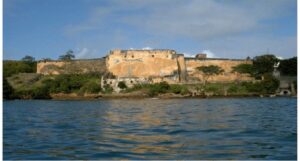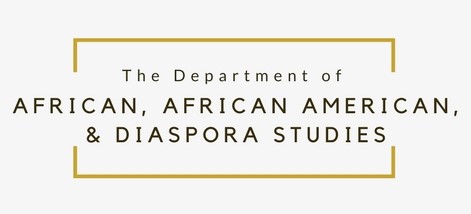Swahili Curriculum
Swahili
Swahili is a Bantu language spoken as a mother tongue or a second language in East and Central African countries such as Kenya, Tanzania, Uganda, Rwanda, Burundi, the Democratic Republic of Congo, and Somalia. Swahili is the most widely spoken African language due to globalization, which underscores language diversity in different fields for effective communication with individuals speaking this language. Over 50 million speakers speak Swahili throughout the world. There are over 2000 languages in Africa, out of which 1500 belong to the Niger-Congo phylum spread in West, East, and Southern Africa. Swahili, identified as one of the 400 Bantu languages belonging to the Niger-Congo phylum, is offered by the University of North Carolina to prepare its students for the global market.
Why Learn Swahili?
As articulated earlier, Swahili prepares students for effective communication for the competitive global market in areas where Swahili may be a requirement, such as research, study abroad programs, medicine, etc. Unlike other African languages, Swahili is not a tonal language. It uses the same alphabet as English. It is the most widely spoken language in Africa. After learning Swahili, you will be in a good position to learn hundreds of other Bantu languages and related Niger-Congo languages spoken all over Africa. Due to a long history of contact spans across centuries between Swahili language and Indo-European and Asian languages, there are many borrowed words in the Swahili language from other major world languages, including English, Portuguese, Germany, Arabic, and Hindi. Swahili is therefore much easier to read, write, listen, and speak. Being one of the major languages spoken in Africa, Swahili introduces you to the indigenous African people’s tradition, embedded in myths and legends of this exclusive culture. Lately, Swahili is found in Pop Culture. Disney movies, Star Trek, and Halo 2—games created by Microsoft have utilized significant Swahili words. Therefore, the Swahili language is easy to learn, opens a diverse experience, and meets global relevance.


Why Take Swahili at UNC?
- To fulfill some of the requirements for a major or minor in African Studies.
- Prepare for travel, study, business, or a diplomatic career in Africa.
- Explore Africa’s cultural ties to the U.S. and other countries.
- Do research in Africa.
The Multicultural Swahili Coast


Prerequisites and Progression Route
To join the Elementary level of the Swahili course (SWAH 401), no previous knowledge is required. For SWAH 402 and beyond, you should have completed the previous course. For example, to join SWAH 402, you must complete SWAH 401 or have an equivalent competent language level after an instructor’s evaluation. The progression route for Swahili is as follows:
SWAH 401 – Elementary Swahili I
This course is the first part of Elementary Swahili. Students are introduced to the basic elements of Standard Swahili language and culture. At the end of this course, students are expected to reach Novice High according to the American Council on the Teaching of Foreign Languages (ACTFL) proficiency guidelines. More specifically, the course is designed to help students acquire conversational ability on basic topics necessary for survival in a Swahili setting.
Prerequisite: NONE. Just your interest to learn Swahili language
Gen Ed: FL.
Grading status: Letter grade.
SWAH 402 – Elementary Swahili II
This course is a continuation of Elementary Swahili I. It introduces more advanced grammar,
emphasizes more fluency in speaking, reading, and writing in standard Swahili. The course is
therefore, specifically designed for students who have some knowledge of Swahili to continue
carrying out tasks in Swahili about themselves, their friends, their world, and Swahili land.
Prerequisite: SWAH 401
Gen Ed: FL.
Grading status: Letter grade.
SWAH 403 – Intermediate Swahili I
This course is the first part of Intermediate Swahili. Students taking this course are assumed to have taken Swahili Elementary I & II where basic elements of Standard Swahili language and culture are introduced. The course is designed to further help students improve their fluency with emphasis on reading, writing, speaking and listening.
Prerequisite: Elementary Swahili I & II
Gen Ed: FL.
Grading status: Letter grade.

After these three levels, a student can join intermediate and advanced Swahili courses to achieve further competence of the language as well as an advanced understanding of the socio-economic and political issues of the East African people.
SWAH 404 – Intermediate Swahili I
This course is the second part of Intermediate Swahili. Students taking this course are assumed to have taken the first level of Intermediate Swahili as well as the elementary levels where basic elements of Standard Swahili language and culture are introduced. Therefore, this course is designed to further help students improve their fluency with emphasis on reading, writing, speaking and listening.
Prerequisite: SWAH 403
Gen Ed: FL.
Grading status: Letter grade.
SWAH 405 – Advanced Swahili I
Advanced Swahili develops advanced skills in speaking, listening, writing, and reading. The course aims at developing fluency and proficiency indicated by coherent narrations marked with correct time and aspect. Students in this course discuss unfamiliar topics and social situations with unexpected complication. Classroom activities include conversations, writing, reading/watching and listening. Classroom interactions involve spontaneous conversations and prepared presentations on both abstract and concrete perspectives on issues from the social, economic, and political fields relevant and of interest to students.
Prerequisite: Intermediate Swahili I and II
Gen Ed: FL.
Grading status: Letter grade.
SWAH 406 – Advanced Plus Swahili
Advanced Plus Swahili – reinforces and expands advanced skills in speaking, listening, writing and reading achieved in SWAH 405 – Advanced Kiswahili. The course aims at attaining fluency and proficiency of students’ speech and writing in Kiswahili.
Prerequisite: SWAH 405
Gen Ed: FL.
Grading status: Letter grade.

Students who have completed SWAH 403 and above may take SWAH 408 – Swahili Language Across the Curriculum. This is a one credit course that addresses global issues in Africa such as health, development and urbanization.
SWAH 408 – Swahili Language Across the Curriculum
SWAH 408 is offered to students who have completed SWAH 403 and above. In this course, students explore contemporary issues in Africa. The course is designed to help students understand the basic socio-economic and political issues in Africa as well as develop their language skills in reading, listening, comprehension and writing of Swahili language.
Prerequisite: SWAH 403 and above
Gen Ed: FL.
Grading status: Letter grade

SWAH 112: Elementary Swahili I & II
Swahili 112 covers two elementary courses: SWAH 401 – Elementary Swahili I and SWAH 402 – Elementary Swahili II. Students learn the basic elements of the Standard Swahili language and culture. According to the American Council on the Teaching of Foreign Languages (ACTFL) proficiency guidelines, students are expected to reach Novice High at the end of this course.
Prerequisite: None. Just interest in learning the Swahili language
Gen Ed: FL.
Grading status: Letter grade
What Do You Need to Register?
Registration for the elementary SWAH401 is in the Fall of every calendar year. Therefore, all students interested in learning Swahili register to learn the language with us here at UNC-Chapel Hill. You can also register for SWAH 112, which covers SWAH 401 and SWAH 402 offered during the Summer program.
In case you have any questions, please contact the chair of the Department or the language coordinator, Dr. Mohammed Mwamzandi,

